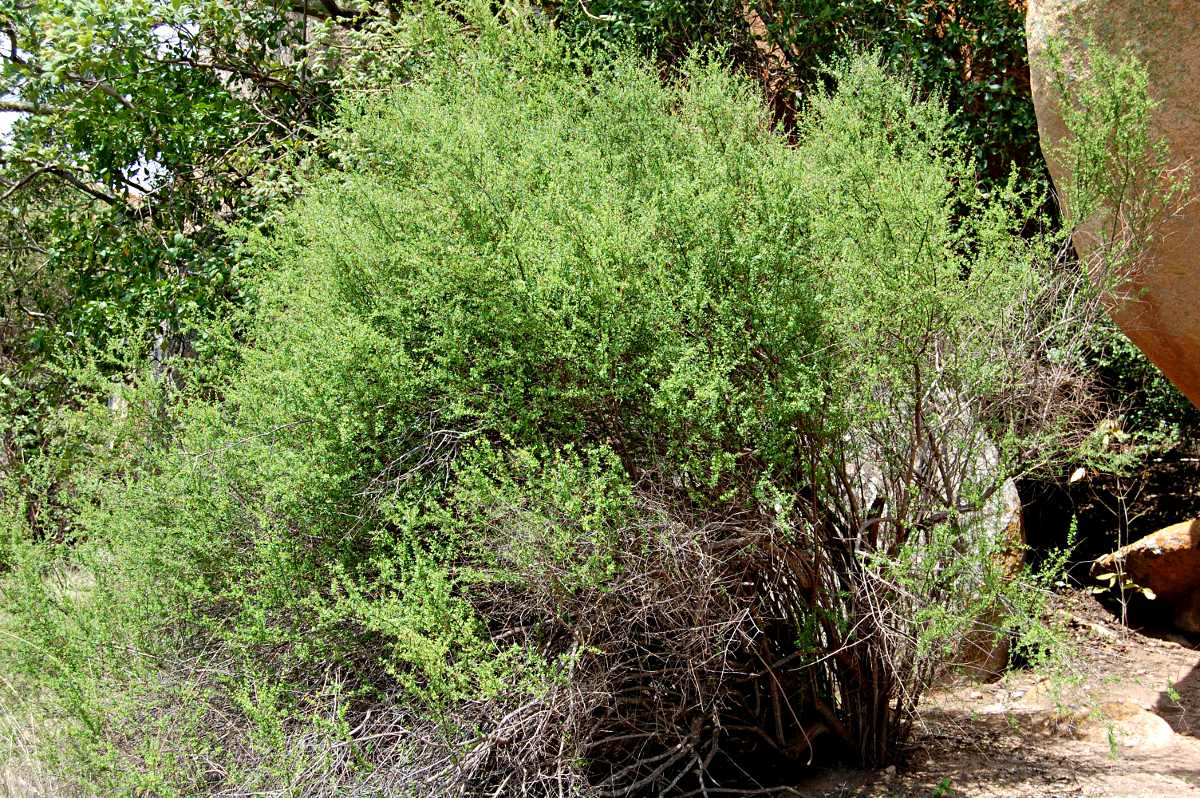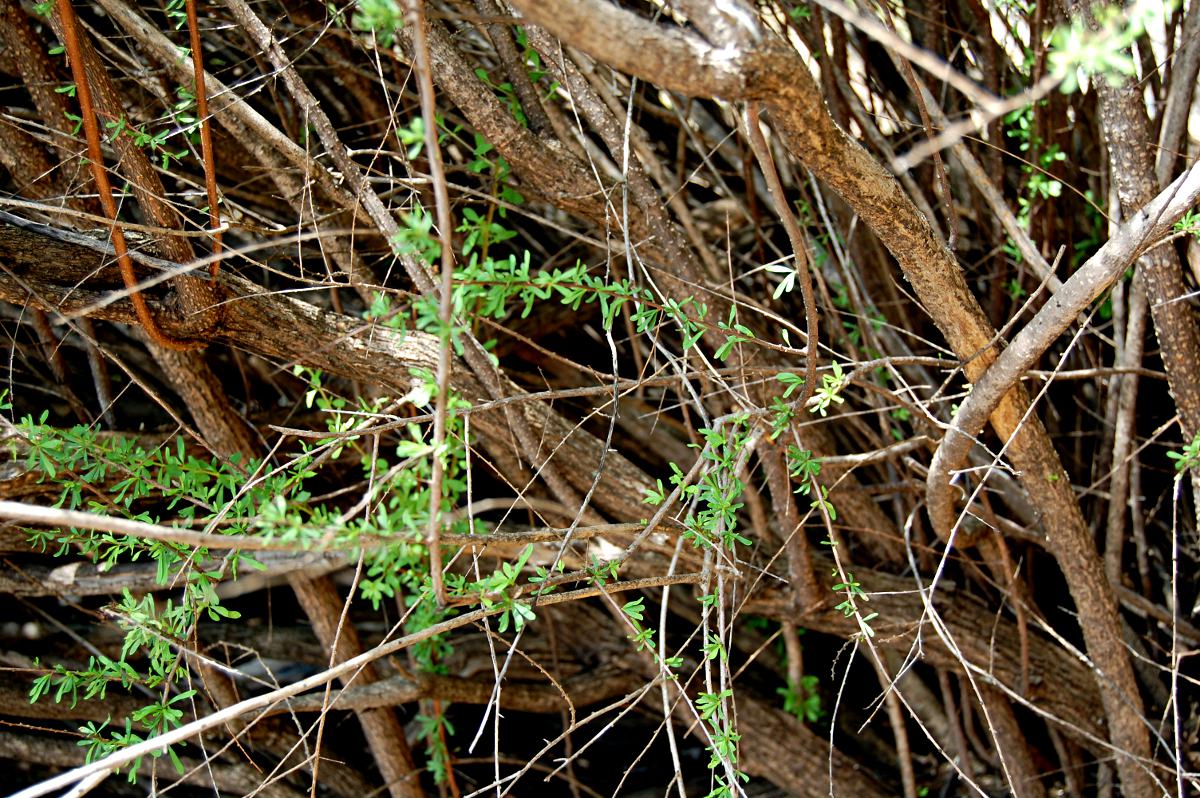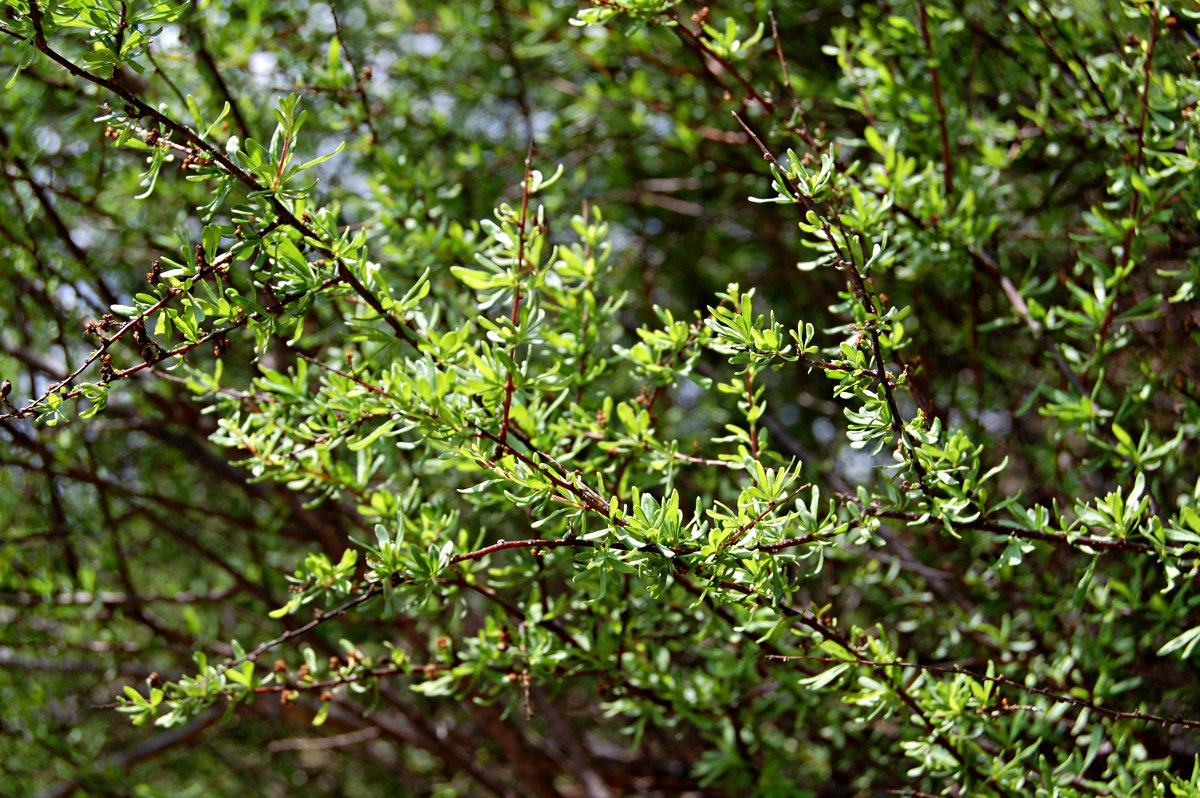Details of record no: 49498
Antherothamnus pearsonii N.E. Br.
Three blocks of information are displayed on this page, namely: (a) details of the record; (b) the record point plotted using Google Maps and (c) any images attached to the record. Please scroll down to see the various items.
Record details:
| Date:
| 2013 |
| Recorder(s): | G Burnett
P Ditchburn
|
| Collector(s): | |
| Determiner(s): | DJ Goyder
|
| Confirmer(s): | |
| Herbarium: | |
| Habitat:
|
On rocky hill slope, next to seep around which many Craterostigma grow every year in wet season |
| Location:
|
Near Efifi Picnic site, Matobo National Park |
| Location code(s):
|
|
| Outing code:
|
|
| Planted code: |
Not planted |
| Country:
|
Zimbabwe |
| Quarter Degree Square:
|
2028B3 |
| Grid reference:
|
|
| FZ divisions:
|
W
|
| Altitude (metres):
|
0 |
| Notes:
|
A multi stemmed bush/shrub about 2 (two) metres in height. Leaves are very small, hairless, varying in length with maximum of 1cm and less in length, and fascicled on dwarf spiky spur branchlets some of which are spinescent. The stipules on the reduced branches resemble the cushions of stipules one finds in Phyllanthus spp. Small tubular flowers, 5 petals, yellow centre, white corolla, strongly honey scented. December to February. Fruit – over many years not seen except once. When seen were old, dry brown 3 to 5 mm spherical resembling peppercorns in appearance. |
| Latitude, Longitude:
|
|
| Location Accuracy Code:
|
6 |
Map of species record
Records not available for display
Images:
Image: 1

| Species id: | 151040 |
| Image id: | 1 |
| Image number: | 14574 |
| Photographer: |
P Ditchburn |
Code 1 if image of a herbarium specimen: | 0 |
| Herbarium in which image taken: | |
| Code 1 if image not to be displayed: | 0 |
| Image notes: | A multi stemmed bush/shrub about 2 (two) metres in height. Leaves are very small, hairless, varying in length with maximum of 1cm and less in length, and fascicled on dwarf spiky spur branchlets some of which are spinescent. The stipules on the reduced branches resemble the cushions of stipules one finds in Phyllanthus spp. Small tubular flowers, 5 petals, yellow centre, white corolla, strongly honey scented. December to February. Fruit – over many years not seen except once. When seen were old, dry brown 3 to 5 mm spherical resembling peppercorns in appearance. |
Image: 2

| Species id: | 151040 |
| Image id: | 2 |
| Image number: | 14575 |
| Photographer: |
P Ditchburn |
Code 1 if image of a herbarium specimen: | 0 |
| Herbarium in which image taken: | |
| Code 1 if image not to be displayed: | 0 |
| Image notes: | A multi stemmed bush/shrub about 2 (two) metres in height. Leaves are very small, hairless, varying in length with maximum of 1cm and less in length, and fascicled on dwarf spiky spur branchlets some of which are spinescent. The stipules on the reduced branches resemble the cushions of stipules one finds in Phyllanthus spp. Small tubular flowers, 5 petals, yellow centre, white corolla, strongly honey scented. December to February. Fruit – over many years not seen except once. When seen were old, dry brown 3 to 5 mm spherical resembling peppercorns in appearance. |
Image: 3

| Species id: | 151040 |
| Image id: | 3 |
| Image number: | 14576 |
| Photographer: |
P Ditchburn |
Code 1 if image of a herbarium specimen: | 0 |
| Herbarium in which image taken: | |
| Code 1 if image not to be displayed: | 0 |
| Image notes: | A multi stemmed bush/shrub about 2 (two) metres in height. Leaves are very small, hairless, varying in length with maximum of 1cm and less in length, and fascicled on dwarf spiky spur branchlets some of which are spinescent. The stipules on the reduced branches resemble the cushions of stipules one finds in Phyllanthus spp. Small tubular flowers, 5 petals, yellow centre, white corolla, strongly honey scented. December to February. Fruit – over many years not seen except once. When seen were old, dry brown 3 to 5 mm spherical resembling peppercorns in appearance. |


